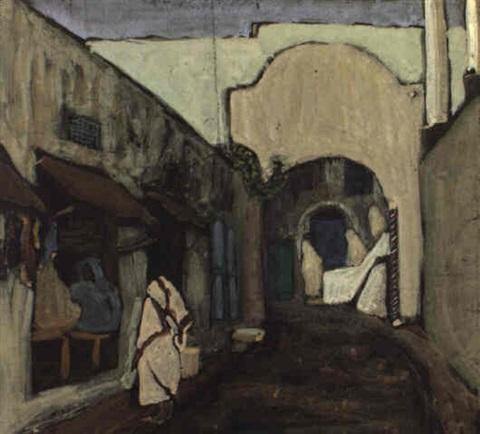Description
Wassily Kandinsky's "Street in Tunis" painting is a masterpiece of abstract art that has captivated art lovers since its creation in 1914. This work is a perfect example of Kandinsky's artistic style, which is characterized by abstraction and emotional expression.
The composition of the painting is fascinating, as Kandinsky uses geometric shapes and lines to create a sense of depth and movement in the image. The street itself seems to be in constant flux, with buildings fading into the background and crisscrossing lines in the foreground.
The use of color in "Street in Tunis" is another outstanding aspect of the work. Kandinsky uses a palette of bold and vibrant colours, which mix and overlap to create a feeling of energy and vitality. Warm tones of yellow, orange and red combine with cool tones of blue and green to create a sense of balance and harmony.
The story behind the painting is also interesting. Kandinsky traveled to Tunis in 1914 and was impressed by the architecture and colors of the city. "Street in Tunis" was created shortly after his return to Europe and became one of the most important works of his career.
Plus, there are little-known aspects of the painting that make it even more fascinating. For example, Kandinsky used a painting technique called "wet-on-wet oil painting," which allowed him to create a unique texture on the surface of the painting.
In short, "Street in Tunis" is a stunning work of art that combines abstraction, composition, color, and history to create a unique visual experience. This painting is a perfect example of Kandinsky's artistic style and remains one of the most important works of his career.

